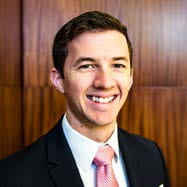Credit: Cassandra McCarthy
Sharpening their resumes and their virtual meeting attire, CBE students honed their networking and interviewing skills last Friday, March 5, at the CBE Spring Career Fair. This semester’s Career Fair, like others held in the past year, was hosted in collaboration with the TU Career Center, via Handshake.
Meeting virtually didn’t deter students in the College of Business and Economics; the event yielded the largest attendance of both companies and students that professional development partner Tasha Benn can recall.
Friday’s event saw over 350 students meeting with 70 employers across a wide range of industries to connect, converse and begin building the foundation for future internships or career opportunities.
Taking advantage of the occasion to connect with our first-class business students were many companies, such as Stanley Black and Decker and Sherwin-Williams, both with a long history of participation in the CBE Career Fair.
This semester also brought many exciting new participants like the Federal Bureau of Investigation, Kennedy Krieger Institute, M&T Bank, Naval Air Systems Command, U.S. Equal Employment Opportunity Commission, and CVS Health.
Participants had the option to meet one-on-one or in groups in virtual sessions. Employer representatives and students both found the virtual format easy to use and enjoyable.
Carol Litchfield, a senior Accounting student, said she had fun during the career fair.
“Everything went super smoothly this time around, and everyone was so kind,” she says.
A representative from CVS Health, Kaitlyn Keller, says she hopes to continue to partner with the CBE and Towson University for future events.
“I spoke with many students who will make a great fit for our internship program,” Keller says.
Virtual Career Fairs will continue to facilitate connection on a personal level, even as restrictions due to COVID-19 prohibit in-person gatherings for now.


 When COVID-19 forced Towson University to turn to remote teaching, Mariana Lebrón, associate professor of leadership and management, encouraged her students in a YouTube video to think of the new learning space as a creative challenge.
When COVID-19 forced Towson University to turn to remote teaching, Mariana Lebrón, associate professor of leadership and management, encouraged her students in a YouTube video to think of the new learning space as a creative challenge. One of the teams from the Spring 2020 term created a game titled “Treasures of Carias,” in which four archaeologists search for ancient Greek artifacts. It involves the use of unique software to create a virtual playing platform.
One of the teams from the Spring 2020 term created a game titled “Treasures of Carias,” in which four archaeologists search for ancient Greek artifacts. It involves the use of unique software to create a virtual playing platform.
 For six years, the Strategic Sales Competition has provided students an opportunity to gain valuable sales experience and the chance to network with local sales professionals from top companies. This year, though taking a new virtual format, proved no different.
For six years, the Strategic Sales Competition has provided students an opportunity to gain valuable sales experience and the chance to network with local sales professionals from top companies. This year, though taking a new virtual format, proved no different. CBE professor of management, Joseph Zuccaro and over 130 CBE students are being recognized state-wide by the Regional Manufacturing Institute (RMI) for one of two “People’s Choice Awards” as “Champions of Maryland Manufacturing.”
CBE professor of management, Joseph Zuccaro and over 130 CBE students are being recognized state-wide by the Regional Manufacturing Institute (RMI) for one of two “People’s Choice Awards” as “Champions of Maryland Manufacturing.” Q: What is the role of CBE’s Young Alumni Advisory Council?
Q: What is the role of CBE’s Young Alumni Advisory Council? Q: Can you tell us more about the Skills to Pay the Bills workshop series?
Q: Can you tell us more about the Skills to Pay the Bills workshop series? Q: How have the workshops evolved since they started?
Q: How have the workshops evolved since they started?